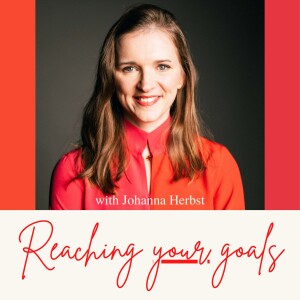Poverty is about more than just meeting basic material needs, says Catherine Thomas. Its corrosive effects are also social and psychological, causing people to feel marginalized and helpless.
Thomas’s research into anti-poverty programs has focused on the effects of one aimed at women in the West African country of Niger, which aims to support subsistence farmers whose livelihoods are impacted by climate change.
One branch of the program involved providing an unconditional $300 cash transfer alongside business and life skills training. Thomas, who is based at the Unversity of Michigan in Ann Arbor, describes the impact it had, compared to similar schemes. These include microfinance business loans, but these tend not to reach those most in need, she says.
Thomas’s research is very much focused on the first of the United Nations Sustainable Development Goals, which aims to end poverty in all its forms everywhere by 2030. Each episode of How to Save Humanity in 17 Goals, a Working Scientist podcast series, features researchers whose work addresses one or more the targets. The first six episodes are produced in partnership with Nature Food, and introduced by Juliana Gil, its chief editor.
Hosted on Acast. See acast.com/privacy for more information.
More Episodes
“Couldn’t cut it as a scientist.” How lab managers and technicians are smashing outdated stereotypes
 2023-09-29
2023-09-29
Culture clashes: Unpicking the power dynamics between research managers and academics
 2023-09-22
2023-09-22
This alternative way to measure research impact made judges cry with joy
 2023-09-15
2023-09-15
“Just get the admin to do it.” Why research managers are feeling misunderstood
 2023-09-08
2023-09-08
A funder's guide to tackling setbacks and winning grants
 2023-08-31
2023-08-31
Sexual harassment in science: tackling abusers, protecting targets, changing cultures
 2023-07-20
2023-07-20
Bullying in academia: why it happens and how to stop it
 2023-06-28
2023-06-28
Magical meeting: a collaboration to tackle child malnutrition in Bangladesh
 2023-06-21
2023-06-21
How to deliver a safer research culture for LGBTQIA+ researchers
 2023-06-02
2023-06-02
Trolled in science: “Hundreds of hateful comments in a single day”
 2023-05-26
2023-05-26
Dodging snipers, fleeing war: displaced researchers share their stories
 2023-05-19
2023-05-19
Science on a shoestring: the researchers paid $15 a month
 2023-05-12
2023-05-12
Shielding science from politics: how Joe Biden’s research integrity drive is faring
 2023-05-05
2023-05-05
Unlocking the mysteries of the brain’s neocortex
 2023-05-03
2023-05-03
How to keep Ukraine’s research hopes alive
 2023-04-28
2023-04-28
How trauma’s effects can pass from generation to generation
 2023-04-26
2023-04-26
How deep brain stimulation is helping people with severe depression
 2023-04-21
2023-04-21
Restoring the sense of smell to COVID-19 patients
 2023-04-14
2023-04-14
Understanding the difference between the mind and the brain
 2023-04-07
2023-04-07
The hospital conversation that set a young epilepsy patient on the neuroscience career path
 2023-03-31
2023-03-31
Create your
podcast in
minutes
- Full-featured podcast site
- Unlimited storage and bandwidth
- Comprehensive podcast stats
- Distribute to Apple Podcasts, Spotify, and more
- Make money with your podcast
It is Free
You may also like

The Business Of


Reaching your Goals


The $100 MBA Show


Women’s Leadership Success


Per My Last Email


The ONE Thing


- Privacy Policy
- Cookie Policy
- Terms of Use
- Consent Preferences
- Copyright © 2015-2024 Podbean.com



 iOS
iOS Android
Android